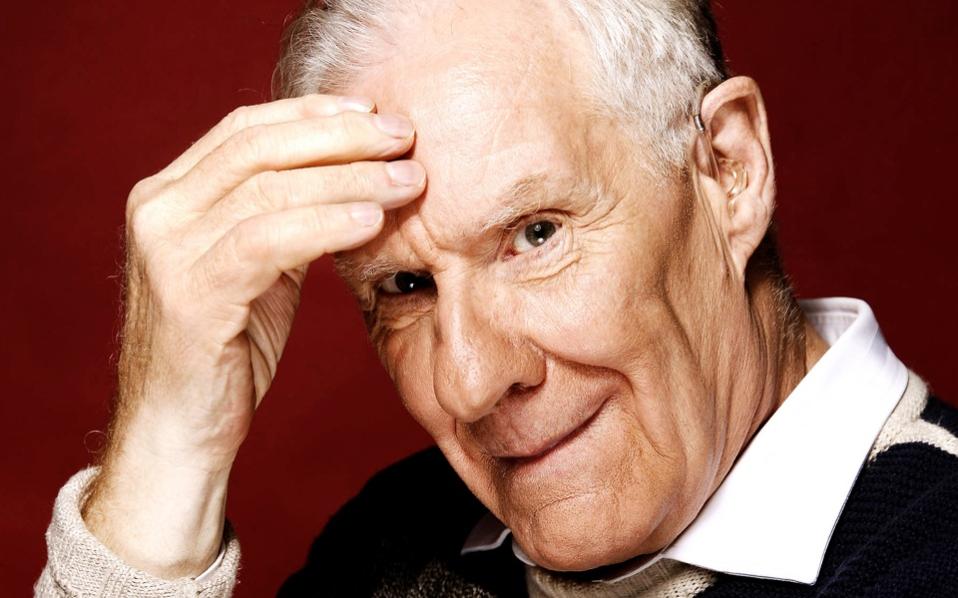Badiou, Alain and Gauchet, Marcel. What Is To Be Done?: A Dialogue on Communism, Capitalism, and the Future of Democracy. Translated by Susan Spitzer. Cambridge, UK: Polity Press, 2016. ISBN: 1509501703. Hardback, paperback, e-book, 168 pages.
Alain Badiou and Marcel Gauchet’s transcripted dialogue, What Is To Be Done?, could not have come at a more prescient time. Published in the wake of unrest in the European Union caused by war and the crisis of neoliberal policies, such as in Greece, the election of leftist UK Labour leader Jeremy Corbyn, and the upsurge of unrest in America that can be seen through the historic levels of support for figures of the left, like Bernie Sanders, it seems that there is a continuance of questioning about what the next step is to be regarding those issues mentioned in the book’s subtitle: communism, capitalism, and democracy.
Questions poised to further dialogue, however, are too often stunted because of intransigent difference, and the possibilities for genuine discussion, at first glance, would seem miniscule when bringing together two French academics who appear on radically divergent sides of political possibility.
As the moderators of the discussion, Martin Duru and Martin Legros, explain in the foreword there were two feared possibilities for the encounter: 1) the extreme of avoidance, where “the two philosophers would just sit there glaring at each other, presenting their respective points of view mechanically without comparing and contrasting them”; and, 2) that the debate would be stifled by “a spirit of polemics, with outrageous caricatures, insults, and ad hominem attacks.” (xiii)
Both Gauchet and Badiou are known for their strong views, and the opposing of a figure who speaks highly of Maoism and the Cultural Revolution to a figure who has paved the way for attempting to revive liberal democracy could have been disastrous. However, despite the pre-calculations, the outcome of the book breaks from possible extremes, instead treading along at a nicely paced, intense discussion wherein Badiou and Gauchet both highlight their academic fortitude, and their respective abilities to allow the insights of the other to develop their own intellectual attachments in varied ways.
Though the text only comprises 149 pages, the book is divided into eight chapters, all of which were portions of three separate meetings between Badiou and Gauchet. These remarkably dense chapters are mostly full of impassioned discourse, though interspersed in are moments of true joviality, as Badiou and Gauchet note their many commonalities. The text begins with an introduction that is focused by the moderators on the importance that communism had to the respective thinker’s own intellectual lives. Here is where the reader learns that, paradoxically, Badiou was, as he says, “a latecomer to communism . . . com[ing] from a social-democratic tradition originally” (1). Badiou’s early years as a militant in the French Section of the Workers’ International, moving on to communism at the age of 31 during May ’68 is juxtaposed with Gauchet’s “exhilaration” at the age of 15 after reading The Communist Manifesto. May ’68 also had a profound effect upon Gauchet, as the failure of the political moment led to “a gradual, heartbreaking abandonment of [his] original Marxism” (5).
From this beginning in initial encounters with communism and intellectual formation, the dialogue is directed to further detailed discussion regarding the history of communism, totalitarianism, and the return of the communist hypothesis. Here, the reader is introduced to several sections of diametrically opposed analyses of communist history and what communism calls for on the international scene (14-47; 48-75). With this latter section the reader gets a cogent presentation of Badiou’s system of thought, such that it reads as a nice primer, especially coupled with the ending chapter where Badiou and Gauchet trade blows on how to understand the political subject.
What is striking is the consistent agreement found throughout the entire discourse, and even in the sections where the two disagree in their hypothesis and analysis of contemporary situations – where Badiou states it is “hypothesis that informs analysis” (110) – and in readings of history. One detects in the overall discussion moments of respect as the interlocutors note their common history, and even their common recognition of international problems. Despite the interesting recounting of different readings of communism and recent history, the commonality and divergences seen in the latter half of the book, as Badiou and Gauchet try to come to proper analyses of the crisis of neoliberalism, is where the most interesting moments of exchange are found.
The last four chapters deal explicitly with the recent economic crisis, how it fits into the overall globalized economic/political milieu, and what is to be done. For Gauchet, the answer is clearly a reformism of democracy which has been dominated by a mode of capitalism that has mutated beyond what Marx was referring to through financial globalization. Badiou’s is found in the re-emergence of a robust communism that leaves tradition behind and takes modernism seriously; countering the scapegoating of globalization, Badiou notes that the parasitism of globalization is merely an iteration of imperialism. Globalization is in fact a return to the normal of capitalism.
Throughout there is scepticism that the other’s project will produce any change. Badiou’s pessimism about the possibility of reforming democracy is unwavering. Gauchet notes that communism is locked within a titanic struggle to undo notions that cannot be merely cleared away and that it must work within the paradigm it wishes to overcome. However, despite the dual-pessimism, they come to realize that they both believe in politics, and Badiou suggests that they are both waiting for an Event to break through and for Gauchet this would “bring about a new reformist subjectivity” (146). Badiou notes that he is, in fact, “offering to help [Gauchet] out!”
The reply he receives is that the offering is a hidden acknowledgment that communism is weak and needs to compromise with “reformed democracies” in order to make real effects. Ending the intriguing and forward thinking discussion, Badiou playfully nods to the unexpected “grand alliance” that will, hopefully, through “fighting the same enemy” provide a solution to these seemingly insurmountable problems plaguing the world today (149).
While the text does not provide any ground breaking solutions to the numerous crises spreading throughout the globe, it does allow the reader to compare and contrast two different possible paths. Likewise, it points to those moments of agreement, and in this it allows the reader to humanize those who believe a separate path to healing the wounds caused by neoliberalism is the proper route. Beyond this juxtaposition of “hypothesis and analysis,” the text is carefully divided into sections, edited well, and guided expertly by the moderators.
As noted above, the book also would serve as a good introduction to both of these thinkers. The form of the text allows them to present their thought in an informal manner, skirting past the sometimes overblown pretensions of academic language that can scare and confuse a newcomer.
Taylor Weaver is a PhD student at the University of Kent. The title of his doctoral project is “St Paul and Money: A Philosophical/Theological Paulinist Critique of Economy.”





One thought on “Review – Badiou and Gauchet on Capitalism and Democracy”